Civilians in Gaza continue to live in ramshackle shelters, struggle to find food and are gripped by uncertainty, according to the Red Cross, even as the Israeli military has shifted its focus to its Lebanon offensive.
Large swaths of Gaza have been reduced to rubble since Israel launched its retaliatory military assault on the Palestinian territory in the wake of the October 7, 2023 Hamas onslaught in southern Israel.
Israel has pummelled Gaza by land, air and sea as it targeted Hamas and other groups, displacing almost all of its civilian population of 2.4 million people at least once in the past year.
In recent weeks, Israel has turned much of its attention to fighting along its northern border, as it launched air strikes on Hezbollah positions in Beirut and sent ground troops into south Lebanon.
Despite the shift in focus, life in Gaza for civilians remains grim and wracked by insecurity, according to International Committee of the Red Cross spokeswoman Sarah Davies, who is currently in Al-Mawasi area of Gaza.
"They're still living here in tents. They still can't return to their homes. They still don't know whether their homes are standing. They're still struggling to feed their families every day, to find drinkable water, to find the energy to keep going," Davies told AFP in an online interview.
Regular explosions and the occasional sound of gunfire continues to be heard in Gaza, according to Davies.
While thousands of troops have been shifted to Israel's northern frontier with Lebanon, Israel announced new operations in parts of Gaza over the weekend as its forces encircled the Jabaliya area and new evacuation orders were published by the army on Saturday.
"People are very tense every time they hear new evacuation orders are issued," said Davies. "I think for people on the ground, it's a very uncertain situation. It's very scary."
Dozens of people have already died in Jabaliya in the latest military assault, according to Gaza civil defence agency.
Israel's military offensive in Gaza has killed at least 41,965 people since the October 7 attack, the majority of them civilians, according to figures provided by the Hamas-run territory's health ministry.
The United Nations acknowledges the figures as reliable.
Amid the fighting, the few remaining hospitals and clinics in Gaza have been hit hard by a lack of supplies, with humanitarian aid into the territory restricted.
Medical facilities have limited access to fuel that is vital to running their operations, adding another layer of stress for doctors and nurses, according to Davies.
As a result, medical professionals are often left "wondering what will happen in the coming days every time that they're waiting for fuel, for spare parts for the generator to see if they can maintain that generator to have lights in the operating theatre so they can save people's lives," said Davies.
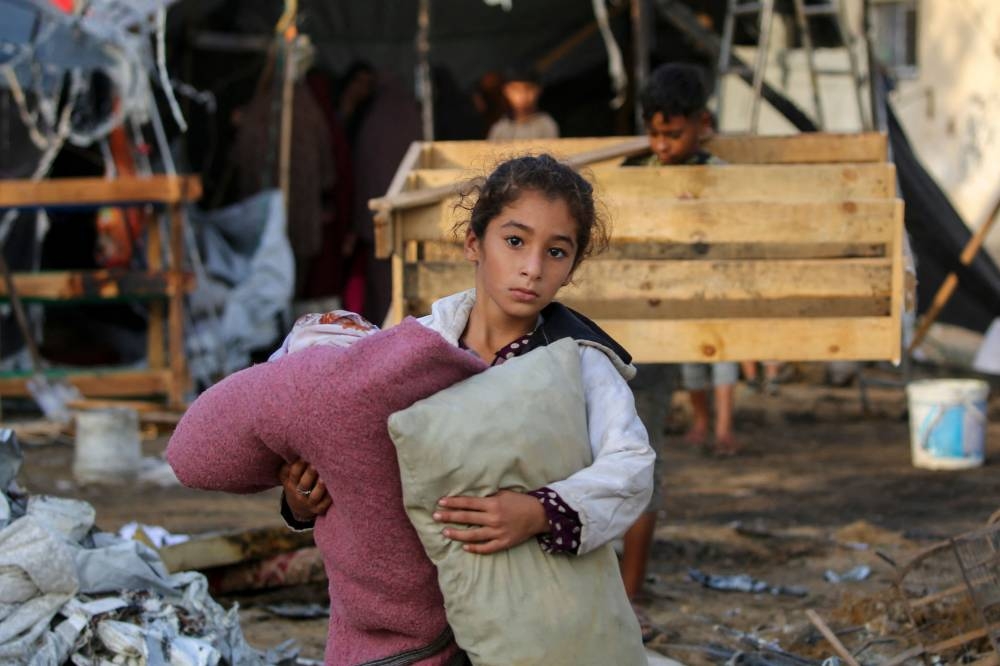
A child carries salvaged items following an Israeli air strike the previous night on the Bureij refugee camp in the central Gaza Strip on Tuesday. AFP
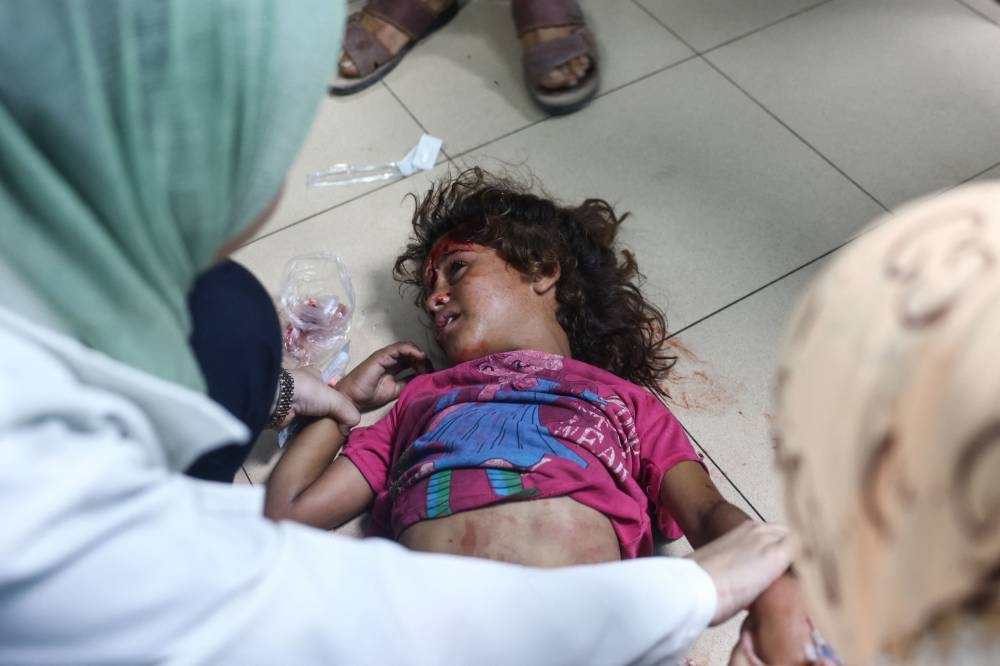
Palestinian medics treat a girl who was injured in Israeli strikes on a displacement camp in the Bureij refugee camp, at the al-Aqsa Martyrs hospital in Deir al-Balah in the central Gaza Strip on Tuesday. AFP
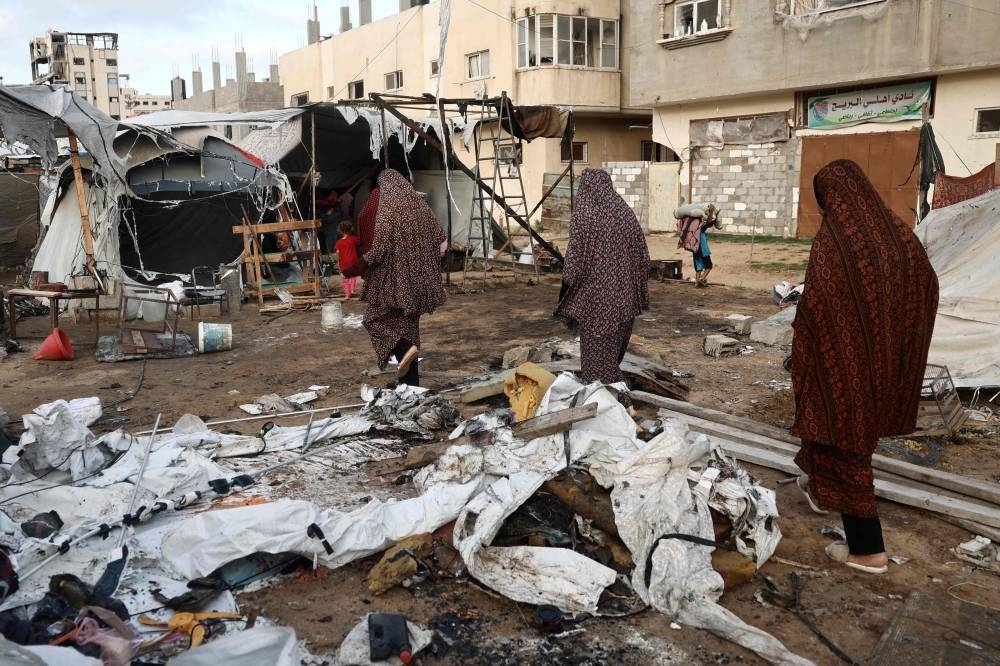
Women walk amid damaged tents following an Israeli air strike the previous night on the Bureij refugee camp in the central Gaza Strip on Tuesday. AFP
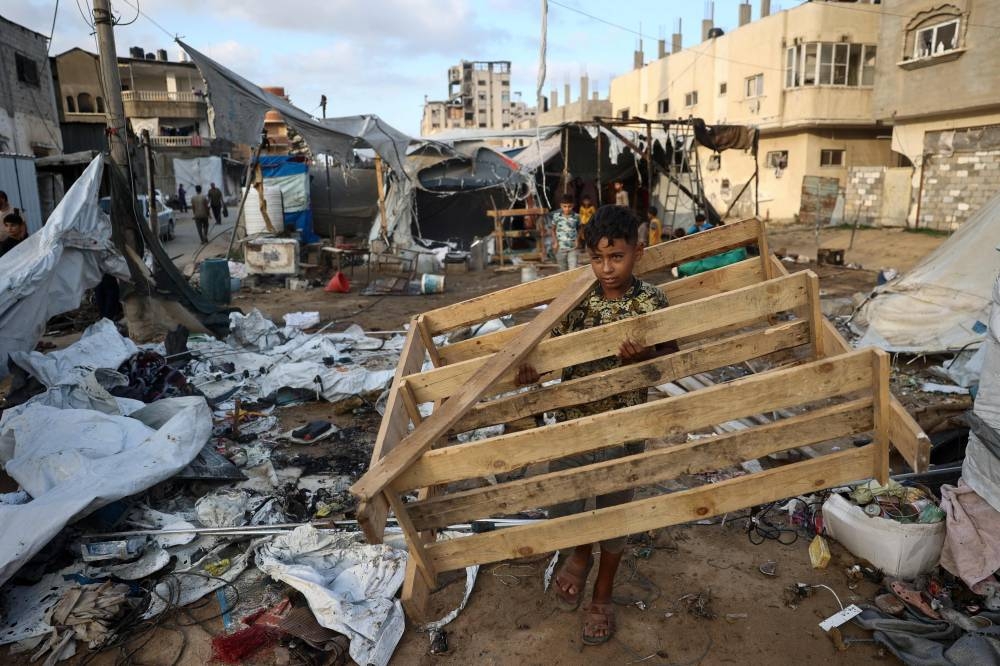
A child carries salvaged items following an Israeli air strike the previous night on the Bureij refugee camp in the central Gaza Strip on Tuesday. AFP
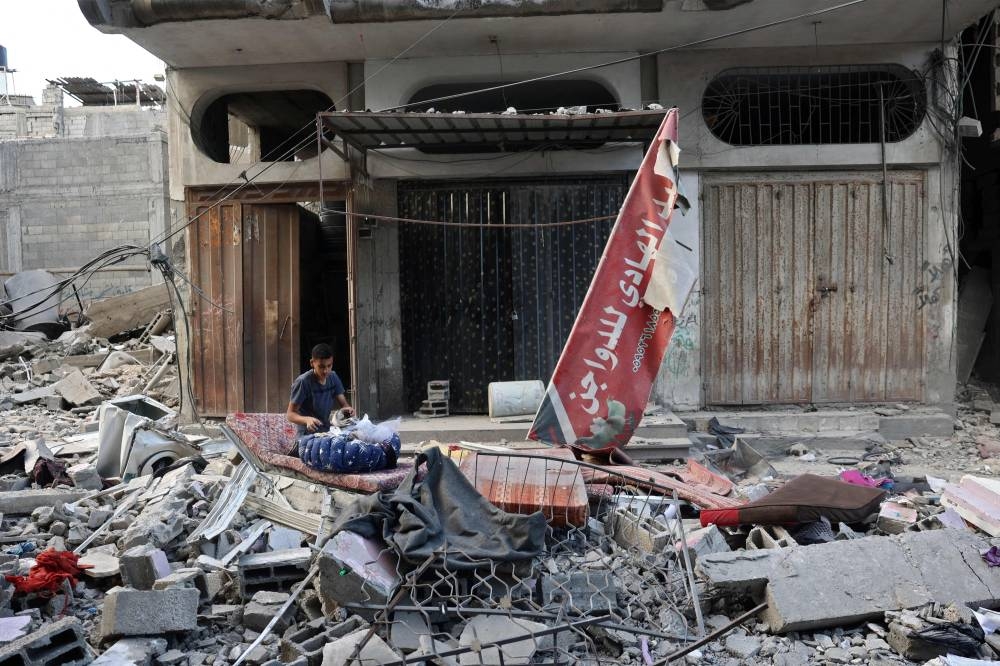
A Palestinian youth collects salvaged items following an Israeli air strike the previous night on the Bureij refugee camp in the central Gaza Strip on Tuesday. AFP
